Plantae Webinar: Launch and advance a career in science without a PhD
Plantae Webinar: Launch and advance a career in science without a PhD
Recorded Thursday, April 22nd
About This Webinar
Many of our career conversations focus on what’s next after a plant science PhD, but there are other ways to be extremely successful in this field without a doctorate. In our next Plantae Webinar, our panelists will discuss how to land a job in science after receiving a BS or MS degree, the best ways to gain skills and network in your current role, and how to gain leadership skills and move into management roles without a PhD.
In this webinar, hosted by the American Society of Plant Biologists Women in Plant Biology Committee, five panelists will share how they have pursued diverse careers in industry, non-government organizations, science writing, and science policy. They will reflect on their experiences and share insights for career development. Current students, graduates, and advisors are encouraged to attend!
PANELISTS
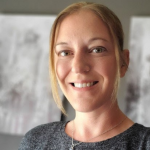
Annie Heiliger is a genetics research scientist at Cargill Specialty Oils (Global Edible Oil Solutions), who researches and introgresses traits that are involved in fatty acid biosynthesis. She uses quantitative genetics, traditional breeding methods, and statistics to introduce desirable traits that help produce and improve oil profile and yield in Brassica napus (canola) hybrids. Annie received a BA in Psychological Sciences (1996-2002) at Purdue University and a BS in Microbiology (2007-2009) at Colorado State University (CSU). During her B.S. at CSU, she worked as an Undergraduate Research Assistant in Dr. John McKay’s Evolutionary Biology lab. This experience cultivated her love for plant science that led her to procure a research assistantship in plant breeding and genetics at CSU. She went on to further her education with a MS in plant breeding and genetics (2010-2012) and interned with Cargill while pursuing her masters degree.
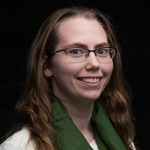 Courtney Leeper currently serves as the writer/copy editor at Noble Research Institute in Ardmore, Oklahoma. In her role, she helps researchers, educators, and consultants communicate science-based information to farmers and ranchers as they regenerate the health of their grazing lands. She edits everything from scientific manuscripts to organizational event promotions, and her writing ranges from technical to magazine feature stories. In July, she will embark on a new journey as a freelance writer and editor. Courtney earned her bachelor’s degree in science and agricultural journalism from the University of Missouri in 2014 and is one class away from completing her master’s degree in English and creative writing.
Courtney Leeper currently serves as the writer/copy editor at Noble Research Institute in Ardmore, Oklahoma. In her role, she helps researchers, educators, and consultants communicate science-based information to farmers and ranchers as they regenerate the health of their grazing lands. She edits everything from scientific manuscripts to organizational event promotions, and her writing ranges from technical to magazine feature stories. In July, she will embark on a new journey as a freelance writer and editor. Courtney earned her bachelor’s degree in science and agricultural journalism from the University of Missouri in 2014 and is one class away from completing her master’s degree in English and creative writing.
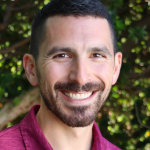 Kyle Freedman is a project manager who has over 10 years of experience and is currently a part-time Project Operations & Technical Specialist at RTI International, an independent non-profit research institute. In this role, Kyle manages project contracts, budgets, procurements and gives technical inputs for international development projects valued up to $74 million in food security and agriculture for government donors. Project management is a rewarding career that provides opportunities for growth in technical and operational areas, international travel, cross-sectoral collaboration, and flexible work-life balance. He earned his BA in Philosophy at the University of North Carolina, Chapel Hill. During his senior year of his BA, he interned for an international education company and worked his way up to Associate Director position after 6 years. Using his international education management experience, he switched to working at RTI International as a project associate in their International Education division and has worked with USAID. Through this role, he began to develop an interest in agriculture in developing countries and moved to the Food Security and Agriculture division as a part-time project manager while studying for his masters degree in international agricultural development at UC Davis.
Kyle Freedman is a project manager who has over 10 years of experience and is currently a part-time Project Operations & Technical Specialist at RTI International, an independent non-profit research institute. In this role, Kyle manages project contracts, budgets, procurements and gives technical inputs for international development projects valued up to $74 million in food security and agriculture for government donors. Project management is a rewarding career that provides opportunities for growth in technical and operational areas, international travel, cross-sectoral collaboration, and flexible work-life balance. He earned his BA in Philosophy at the University of North Carolina, Chapel Hill. During his senior year of his BA, he interned for an international education company and worked his way up to Associate Director position after 6 years. Using his international education management experience, he switched to working at RTI International as a project associate in their International Education division and has worked with USAID. Through this role, he began to develop an interest in agriculture in developing countries and moved to the Food Security and Agriculture division as a part-time project manager while studying for his masters degree in international agricultural development at UC Davis.
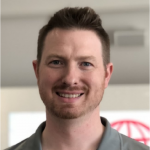 Andrew Foudree is a Senior Research Associate in the R&D division at Corteva Agriscience, who is focused on creating new valuable seed traits. In this role, he is given a good amount of autonomy with respect to which projects he takes on and how he reports to management. He earned his BS in Microbiology from the University of Minnesota in 2001 and MS in Plant Biology at Iowa State University in 2012. Following his degree in Plant Biology, he realized that he loved plant science research and continued to pursue a job in plant research at Corteva. His work involves the management of pipeline data storage in relational databases and direct reporting from those locations. This means that he uses a significant number of software applications to guide decisions as to which transformation events will progress and to what extent they will be tested in the field. Outside of his career, he enjoys boating, camping, fishing, and hunting with his family. Andrew is also an environmentalist at heart and supports the direction of his company towards sustainable agriculture.
Andrew Foudree is a Senior Research Associate in the R&D division at Corteva Agriscience, who is focused on creating new valuable seed traits. In this role, he is given a good amount of autonomy with respect to which projects he takes on and how he reports to management. He earned his BS in Microbiology from the University of Minnesota in 2001 and MS in Plant Biology at Iowa State University in 2012. Following his degree in Plant Biology, he realized that he loved plant science research and continued to pursue a job in plant research at Corteva. His work involves the management of pipeline data storage in relational databases and direct reporting from those locations. This means that he uses a significant number of software applications to guide decisions as to which transformation events will progress and to what extent they will be tested in the field. Outside of his career, he enjoys boating, camping, fishing, and hunting with his family. Andrew is also an environmentalist at heart and supports the direction of his company towards sustainable agriculture.
 Eliana Perlmutter is a key member of the Lewis-Burke advocacy team. She uses her background in science, technology, and government, paired with a passion for clear communication and creative problem-solving, to cover a portfolio that spans topics such as environmental science, energy, and STEM education. She has in-depth knowledge about science programs at the Department of Interior (DOI), research and education opportunities at the National Science Foundation (NSF), and works with clients on STEM programs spanning the government’s research agencies. Eliana actively engages with coalitions on behalf of clients to advocate growing funding to support federal science agencies. Eliana discovered her passion for the intersection of these areas as a Policy Intern for the American Geosciences Institute (AGI), where she tracked policies and legislation of importance to the geosciences community. She also gained legislative experience as an intern in the offices of Massachusetts Congressmen Joseph P. Kennedy III and James P. McGovern. Eliana studied geosciences and engineering at Smith College. A native of Massachusetts, Eliana gained business experience in the marketing and promotion offices of the Boston Red Sox. In her spare time, she enjoys exploring the outdoors and learning circus arts.
Eliana Perlmutter is a key member of the Lewis-Burke advocacy team. She uses her background in science, technology, and government, paired with a passion for clear communication and creative problem-solving, to cover a portfolio that spans topics such as environmental science, energy, and STEM education. She has in-depth knowledge about science programs at the Department of Interior (DOI), research and education opportunities at the National Science Foundation (NSF), and works with clients on STEM programs spanning the government’s research agencies. Eliana actively engages with coalitions on behalf of clients to advocate growing funding to support federal science agencies. Eliana discovered her passion for the intersection of these areas as a Policy Intern for the American Geosciences Institute (AGI), where she tracked policies and legislation of importance to the geosciences community. She also gained legislative experience as an intern in the offices of Massachusetts Congressmen Joseph P. Kennedy III and James P. McGovern. Eliana studied geosciences and engineering at Smith College. A native of Massachusetts, Eliana gained business experience in the marketing and promotion offices of the Boston Red Sox. In her spare time, she enjoys exploring the outdoors and learning circus arts.
MODERATORS
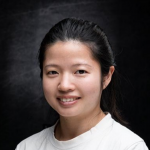 Sabrina Chin, Postdoctoral Fellow at the University of Wisconsin, Madison, ASPB Women in Plant Biology Committee member
Sabrina Chin, Postdoctoral Fellow at the University of Wisconsin, Madison, ASPB Women in Plant Biology Committee member
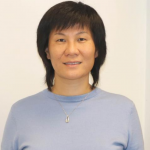 Li Tian, Associate Professor in the Department of Plant Sciences at the University of California, Davis, ASPB Women in Plant Biology Committee member
Li Tian, Associate Professor in the Department of Plant Sciences at the University of California, Davis, ASPB Women in Plant Biology Committee member
This webinar is freely available thanks to the support of the American Society of Plant Biologists. Join today.
Additional Q&A
For Annie and Andrew: what future career advancement options do you have? Is it possible/easy to advance from a technician-level position up to your position? How much of your time is spent in the lab vs in an office writing papers and grants?
From Andrew: I have a friend that started out as a contractor with no benefits. That is the lowest position you can start at in research. Fast forward 5 years and she is full time, in a very nice B.S. level position, and going to school for her masters – paid by the Company. This story is not out of the ordinary. Moving up is definitely attainable at any level.
Question for those in research: starting a job with a MS qualification in the industry (eg. corteva or syngenta) often starts out as basically doing the work of a lab technician it seems. Is it the usual path for people to take from internship/lab tech and then start working their way up to eventually become a research associate at the company?
From Andrew: Don’t sell yourself short. I met a guy in graduate school that applied to jobs for fun. The practice never hurts and I feel that you may start much higher than you think.
What are better career possibilities after Master’s in botany?
From Andrew: Endless. Follow your passion and see where it leads. You may find yourself in a completely different area. I have many friends at work that are in finance and regulatory.
For Annie: I am an Ethiopian maize breeding and genetics researcher. I am pondering over your program’s backcross breeding. Why did you select backcross than forwarding breeding? What is the objective of your crossing program?
From Annie: In short, we do both. Hybrid parents are discovered through forward breeding but don’t always carry the necessary traits for the hybrid to be commercial-ready, which is where BC breeding comes in.
For Eliana: Do you have any advice on how to pivot as a scientist into science policy?
From Eliana: If you’d like to be more involved with science policy connected with ASPB, feel free to reach out to my colleague Bridget Krieger ([email protected]).
As mentioned, the ASPB newsletter has content on science policy. Another good newsletter on science policy is https://www.aip.org/fyi.
I am from Tunisia and have a Master’s degree in biological sciences: molecular and cellular physiology. I want new expériences in a lab in the US. I want to know how to have such an experience like you guys.
From Annie: Don’t be shy about meeting people at conferences, webinars, Linked In, etc. Be sure to introduce yourself in these meetings/situations and express your goals and motivation. Attend workshops and talk to other participants. There are plenty of ways to network and let your ambitions be known. Even if you had a short talk with someone, you can bring that up later if a job opens up with their company (e.g. “I spoke with person A at an ASPB meeting and was very interested in the work you do, particularly x”)
From Andrew: Never quit learning new things and enhancing your skill set. Next – and this applies to multiple questions – learn where you want to work and how to navigate the application process. Getting accepted to job interviews is difficult. Practice interviewing and find out as much as you can about the hiring process. Maybe you have friends that work some where that can give you guidance?
For Annie: What advice do you have for individuals in the transitionary period between finishing an MSc and looking for a job. What are the best ways to use that time productively and in ways that can make you a better candidate while searching/applying for various positions?
From Annie: Although some of this was answered live, I would add that any job in the industry (or company, preferably) that you would like to work in is a viable option if you aren’t able to obtain the specific job that you’re after, in that moment. It took me many months of sending out applications and resumes to even get a call for an interview anywhere. Although this was disheartening at first, I fell back on my networks and obtained a job with a different company, processing seed and helping in field production. I did not stop applying while I was at this first job, and eventually a position that better matched my skills and ambition was opened at the company I interned with. So, in short, find a relevant job and keep looking.
For Eliana: Do you have to start with an unpaid or paid internship to get into this field without a graduate degree? I didn’t take any politics classes in undergrad, so would that make moving into this field more difficult? What is your day-to-day work like – are you in meetings and writing most of the day?
From Eliana: To the question of my day to day, there isn’t a standard day and we are often reactive to actions from the federal government. I’m often meeting with university and scientific society leaders or researchers, meetings with congressional staff, meeting with coalitions of other government relations professionals, and lots of writing as well (talking points, one-pagers, policy proposals, newsletter articles). I attend congressional committee hearings and look at legislation to see how we can improve it or if we have concerns.
How likely is it for MSc grads abroad to find a job in the US? What are the key ingredients to get successful?
From Andrew: Corteva has jobs around the world. Maybe start by looking for an internship your area. I can provide you with a location nearest to where you currently live if you would like: [email protected] – Additional notes: Maybe try to apply to jobs that are remote with a US company. Increase your connections to US companies through ASPB!
For Courtney: What’s your best advice about translational science or science communication for the public?
From Courtney: The No. 1 thing to consider when translating/communicating science to the public is to think about who you are talking to (what their expertise/interests are) and your goals for that communication (is it purely educational or are you trying to get them to do something/think something?). Think of different metaphors or ways of explanation that make the science relatable and relevant to that particular person (or group of people). This is why science communicators should gain some journalism or communication training and experience in addition to the science training. You will have an advantage if you have a general understanding of the science, but it’s more important to be able to ask good questions and know how to dig for information then be able to relate that information to someone who doesn’t have any background in it. There are different techniques for this, but they generally feed back into the idea that humans are engaged by stories, or narrative. So gain an understanding of some basic narrative principles. While this is not always the case, I have seen that the more specialized a person is in a subject, the more difficult it can be for them to relate it to the general public. This is why, if you’re interested in science communication, you may find getting a Ph.D. is not necessarily helpful. Finally, always have someone who is not as familiar with the subject look over what you’re writing to see if it makes sense to them. It’s always good to get feedback from others, especially those who relate to your target audience.
What advice would you give undergraduates considering a career in science today?
From Andrew: Diversify your skill set. Learn how to negotiate (YouTube Chris Voss – from Iowa), Public Speaking, Writing, Programming etc.
Are there any skills that are typically not taught in plant science graduate degree programs that would be beneficial to have for individuals interested in entering the private side of crop development?
From Annie: Great question. Personally, I was disappoined in the amount of stats courses that were required for my Master’s, so I took an additional stat course and was very glad I did. Other than that, computer programming is always a good thing to self-teach and add to your resume (Python, R, and VBS in particular).
Without putting anyone on the spot, is there any way the panelists can point us to information about average salaries for their type of position?
From Andrew: For project management in my field and experience, entry level positions start around US $40-50,000 and go up to about US $150,000 at a project manager level. Varies widely based on the size of organization and type of project.
Most (if not all) of the panelists have had internships right out of college and it sounds like said internships really jumpstarted their careers. What sort of pathways are there into a career in science that might have the same networking/other benefits for those who missed out on internships right out of their bachelor’s?
From Andrew: I think working for a contractor agency is a great way to get into a company and bypass the traditional HR application process.
I am interested in being hands-on in the wet lab. Is it possible to be hands-on in the lab as a research scientist if you want to? Would it be better to be a research associate/technician? If I want to be hands-on in my early career, is it easy to move up to research scientist later? Thank you!
From Annie: In my company, it is absolutely a possibility to work as a research tech at hire. It is also possible to move out of the tech role if you find something you are more interested later. Again, make your intentions and interests known to your supervisors – communicate, learn, and follow-up. Good luck!
From Andrew: This is a big concern of many people that love bench work – I have asked myself this question many times. The reality is that once you reach a certain level, you will leave the bench behind. This applies in academia and industry. I have seen Scientist try to be in the lab and it never works out. At their level, they are required the shape the future experiments and direction. Unfortunately that leaves very little time for bench work. Sorry, just my options from my perspective. Others may disagree.
Question to anyone: for someone who graduated during the pandemic, what are some questions to ask yourself to decide whether you should apply master’s/higher degree or keep applying for jobs? or do both and balance the two?
From Annie: Ask yourself if you are wanting to pursue a PhD because you don’t feel you have enough options/job opportunities, or if you are really invested in learning something that intensively for several years. I don’t think a PhD should ever be a “fall back” option. You either have the motivation & want to earn the degree very badly, or you don’t; if you don’t, then I would highly recommend finding any position that relates to your career, even if it is a step or two below what you envision for yourself. A foot in the door job opportunity could very well lead to better opportunities later if you show your work ethic and skills. However, a Master’s degree is not as intense as a PhD and could be a good option if the right opportunity arose. Some things to think about there: Are there assistantships available to cover tuition/living costs? Do you like the advisor and the research? What job are you interested in after graduating with an MS (look at some relative job postings and see what skills are required)?
To all panelists – just from discussions with my peers in graduate, school imposter syndrome seems to be very prevalent among both emerging scientists and professionals. If you have experienced these feelings, what are some coping skills that let found helpful?
From Annie: I have absolutely felt imposter syndrome at work and in graduate school! Talking with others has been the best way to deal with this, personally. You may be surprised at how many people deal with these feelings themselves. Chatting with your peers about their experiences with this could help.
From Andrew: You need good friends/mentors/support to combat this. Make connections with people in ASPB that can guide you in a supportive way. My additional suggestion: in every interview – pick your team. If you don’t think the team will be a good fit – pass on the job.
Thank you to the panelists! I was wondering what positions would be available to an MSc graduate focusing more on technical skills (benchwork, labwork etc), that aren’t necessarily that of a lab tech?
From Andrew: Assay development/validation would be a great place for this. There are several positions that require a high amount of skill at the bench. Plant transformation, genome sequencing (Illumina and Nanopore), assay development for CRISPR identification to name a few.
For Annie and Andrew: are there any trainings or courses available to overcome the lack of experience in omics data analysis ?
From Annie: The University of Washington offers some fantastic summer courses you may want to look into. They also offer scholarships. Check out UW Biostatistics Summer Institutes. Also check out free online courses through Coursera/EdX, etc.
From Andrew: Learning to create data visualizations is a good start. Think R studio and Python (both free). A good place to learn is LinkedIn learning. The cost per year is low and the learning courses are well build & online.
What is the best way that yu can recommend to network with people in the field you are interested in?
From Annie: Adding that any interaction with anyone in the field should be thought of as an opportunity to network. Offer help to your peers, volunteer in a lab, talk to Professors, attend scientific meetings. Show off your work ethic to anyone in that space that pays attention.
From Andrew: ASPB is a great way. Getting involved in local policy or groups online that share similar interests would be beneficial. Make sure that you can handle the added time commitment.
Just wondering. Do you foresee that as PhD holders increase globally, the master’s degree could lose its value?
From Annie: It’s possible, of course, but I haven’t looked into the data surrounding number of Masters and PhDs to answer this properly. However, I think there are some places that require PhDs for certain jobs (E.g. USDA, CDC), but for other, private companies, your skills versus the job requirements will prevail over whatever degree you have. My company has posted jobs and received many applications from the posting, that range from BS to PhDs. Rarely is the degree itself seen as the defining factor for who goes on to the interview stage. Rather, the hiring managers look at skill sets, experience, and motivation.
More specifically for the panelists who work in industry – is there company incentives to go back for a master’s or PhD? Or would you have to leave work in order to return to schooling, even if the goal is to climb in that company?
From Annie: In my company, both situations are common. Some decide to leave in order to give more time and focus to the PhD, and others have chosen to work and pursue PhD at the same time, and my company has financially supported them.


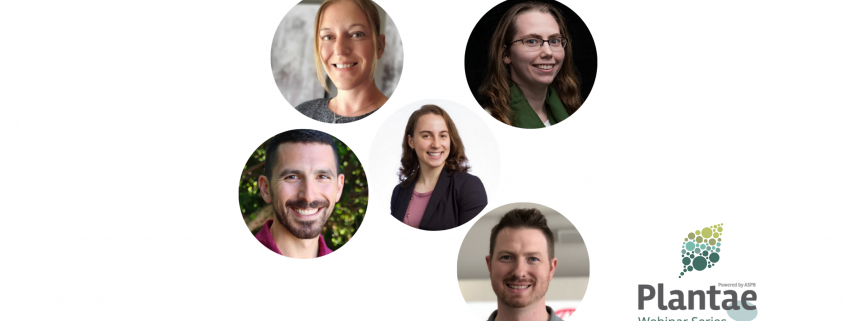
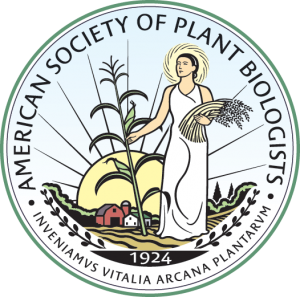
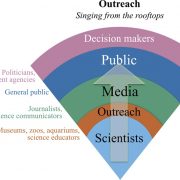
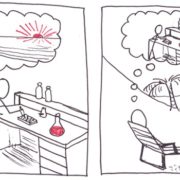
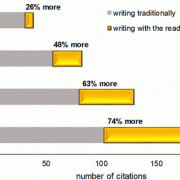

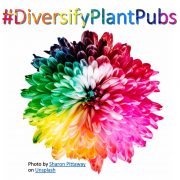

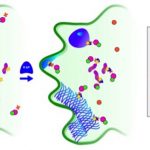
I’m Joseph Hindovel Kpandeba from Sierra Leone Study Biological Sciences in Plants Morphology and plants Physiology. I’m interested in this area of study.
I we live to join you to gain more knowledge and experience in my studies.
Dear Joseph, That’s wonderful – please continue to follow us to learn more. You can visit this website, or follow us on Twitter (@plantae_org). You can also sign up for our free weekly email https://aspb.org/publications/signal/.